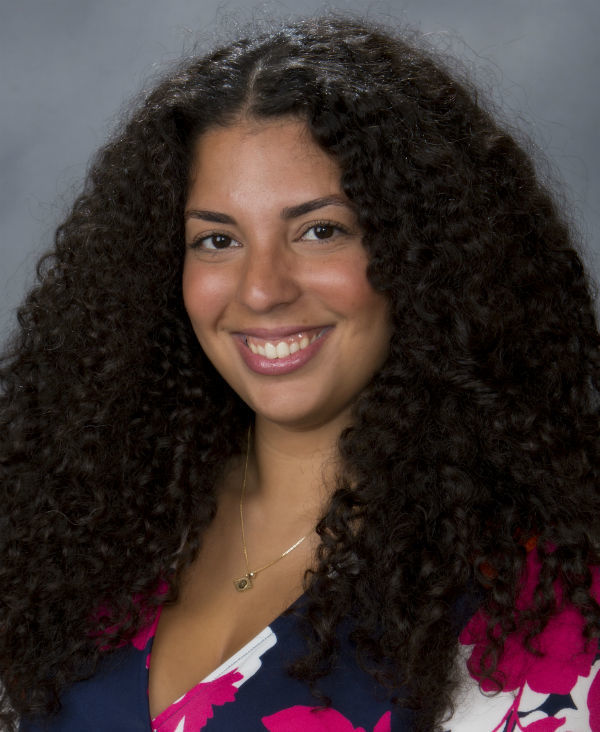 Brandy Sky Martinez
Brandy Sky Martinez
This is the third installment in an ongoing Q&A series with Arts and Letters graduate students. Read more Q&As with graduate students and faculty members here.
Brandy Sky Martinez, a Ph.D. student in clinical psychology, received a bachelor’s degree in psychology and philosophy from Florida International University in 2012. She focuses on stress and coping strategies.
What are you working on now?
I am primarily interested in exploring and identifying healthy coping resources that encourage adaptive stress management. My current work examines how mindfulness or religious/spiritual coping, in particular, can be used to regulate negative emotions during difficult situations.
In addition to examining self-reported, subjective changes in mood following mindful or religious/spiritual coping, I also investigate what effects coping strategies might have on the physiological stress response. By collecting non-invasive physiological measures such as heart rate and salivary cortisol — the primary stress hormone in the human stress response — I explore how coping strategies can “get under the skin” and regulate the physiological stress response as well.
What inspired you to research stress and coping strategies?
As an undergraduate, I was interested in the field of positive psychology and the concept of human flourishing. Although my current work has deviated a bit from the positive psych field, the undertones are still there. In my own way, I’m still trying to figure out human flourishing by studying stress and how to deal with it effectively so that we don’t get worn out by life and instead grow old being happy and healthy.
How did you choose Notre Dame?
I was fortunate enough to work with my primary adviser, Michelle Wirth, as a visiting undergraduate student during a Summer Research Opportunities Program at Notre Dame. So, I had a strong sense of our working relationship, her mentoring style, and the type of research I would be doing. Through the summer program, I felt well supported at Notre Dame and became familiar with the kinds of resources that would be available to me as a graduate student outside of my department — that was important, too.
What do you enjoy most about the Ph.D. program in psychology?
The supportive atmosphere of the department. I am lucky to have encouraging advisers that welcome my research ideas and help me to develop them into my own line of research inquiry.
I also appreciate how interdisciplinary and collaborative the psychology department is. Although my training is in clinical psychology, I also work with professors in the cognitive and developmental areas. Because I’m able to work across disciplines, the way I think of and approach research questions has evolved — I have more resources in my toolkit.
How do you feel the program is preparing you for the job market?
My program is doing a great job. We have a lot of opportunities available to us, irrespective of how far along in the program we are.
For clinical students, we have a two-year course sequence dedicated in part to professional development. And graduate students are welcome to attend job talks for prospective faculty hires. Students can also arrange to give practice job talks to the department when preparing for interviews. And we have other resources like area-specific brown bag lunches where students, faculty, and visiting scholars discuss their research.
I am also co-chair of the student-led Professional Development Group, which organizes a series of events for graduate students. Some topics we’re addressing this year include diversity in academia, communicating science to a non-academic audience, and tips for interviewing and negotiating job positions.
Lastly, we have an outstanding quantitative psychology program within our department that allows graduate students from other areas of psychology to receive a quantitative minor. This is an excellent way to stand out on the job market due to the additional rigorous training we receive in quantitative methods.


